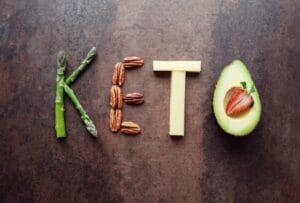
The ketogenic diet for athletes: Benefits, drawbacks, and practical tips
1. Introduction
The ketogenic diet (keto) has gained widespread popularity in recent years as a low-carb, high-fat dietary strategy. Originally developed in the 1920s as a treatment for epilepsy, it has now become a popular lifestyle choice, especially among athletes. Keto aims to shift the body's energy source from carbohydrates to fat, leading to a state known as ketosis. This metabolic change is thought to offer some advantages in athlete nutrition, especially in endurance sports.
As athletes strive to maximize performance, keto has become an interesting option. By understanding how keto works and its potential benefits, athletes can make informed decisions about incorporating it into their training programs.
2. Understanding the Ketogenic Diet
The keto diet consists of:
- High fat intake: About 70-75% of total calories.
- Medium amount of protein: About 20-25% of total calories.
- Low amounts of carbohydrates: Usually less than 5% of total calories, equivalent to about 20-50 grams per day.
By drastically reducing carbohydrate consumption, the body begins to produce ketones - a byproduct of fat breakdown that becomes the main source of energy in the absence of sufficient glucose. This process is known as ketosis, and it directly affects energy levels, allowing for a more sustained release of energy than the rapid fluctuations associated with carbohydrate metabolism.
Ketosis and energy levels
As carbohydrates are reduced, glycogen stores are depleted and the liver begins to produce ketones from fat. In ketosis, muscles use ketones for energy, and this is thought to improve endurance by providing a constant source of energy. For athletes, especially those involved in long-duration sports, ketosis may reduce the need to eat carbohydrates frequently during workouts or events.
3. Benefits of the ketogenic diet for athletes
Strengthening endurance
For athletes who require endurance, such as long-distance runners and cyclists, keto may help improve endurance. Because body fat stores are much larger than glycogen stores, keto can help sustain activity without the "crash" associated with running out of carbohydrates.
Weight Management
Keto contributes to fat loss without losing muscle, as it encourages the body to burn stored fat. This is especially useful for athletes seeking to maintain a lean body structure. It also helps stabilize blood sugar levels, which reduces hunger and helps with weight management.
Improved mental focus
The brain consumes a large percentage of glucose, but it can also function well on ketones. Many athletes report increased focus, clarity of mind, and higher energy during exercise after adapting to keto, which is helpful in sports that require high concentration and strategic thinking.
4. Possible disadvantages and considerations
Common Side Effects (Keto Flu)
Athletes may experience temporary symptoms known as the "keto flu" when starting the diet. Symptoms include fatigue, headaches, and irritability, and occur as the body adjusts to low carbohydrates. These effects are usually temporary but can affect the training schedule in the early stages.
Individual variability
Not all athletes respond to keto in the same way. Some may find it improves performance, while others experience a decrease in strength or endurance. Genetics, body composition, and sport type all play a role in determining an athlete's response to ketosis. It's important for athletes to try the system and monitor their performance to assess its effectiveness.
Nutrient deficiencies
WHILE REDUCING A VARIETY OF FOOD SOURCES, ATHLETES MAY MISS OUT ON IMPORTANT NUTRIENTS SUCH AS FIBER, POTASSIUM, AND VITAMINS C AND B. LOW-CARB VEGETABLES, AVOCADOS, NUTS, AND SEEDS CAN BE ADDED TO THE SYSTEM TO COMBAT POTENTIAL DEFICIENCIES, AND ATHLETES SHOULD CONSIDER SUPPLEMENTS IF NECESSARY.
5. Practical tips for ketogenic dieting
Meal planning ideas for athletes
Creating balanced keto meals includes a range of low-carb and high-fat options:
- Breakfast: Spinach, avocado and cheese omelet
- Lunch: Grilled chicken salad with olive oil and mixed vegetables
- Dinner: Salmon cooked in butter with a side of steamed broccoli
Snack and supplement ideas
Athletes need quick and convenient snacks to keep them going:
- Keto-friendly snacks: Nuts, cottage cheese, olives, and hard-boiled eggs.
- Nutritional supplements: Omega-3, magnesium, and potassium to support muscle function and recovery.
Hydration and electrolyte balance
Hydration is essential in keto, as low carbohydrates lead to water and mineral loss. To avoid dehydration and muscle cramping:
- Drink water regularly throughout the day.
- Add electrolytes through salt, potassium, magnesium or bone broth.
6. Case studies and testimonials
Some athletes have reported positive results after adopting keto:
- Zach Peter, a marathon runner who set a world record for a 100-mile run after adopting keto, attributed his success to increased fat adaptation that allowed him to maintain energy levels for extended periods of time.
- Chris Froome, a professional cyclist, noted that he has tried keto to improve his performance, although he alternates between high-carb and keto periods depending on his training goals.
Scientific evidence
Research into keto for athletes is still ongoing. A 2016 study published in Metabolism showed that keto-adapted athletes achieve a higher rate of fat oxidation during exercise than their high-carb counterparts, resulting in continuous energy availability.
7. Conclusion
Keto offers a unique approach to athlete nutrition, especially for athletes looking for a constant source of energy and effective weight management. While it may enhance mental focus and endurance, athletes should also be aware of potential side effects, nutrient deficiencies, and varying individual responses. It is advisable to consult a sports nutritionist to customize a keto regimen to individual needs and goals.
In the end, keto has its pros and cons, and it's important for each athlete to evaluate how well it fits their goals. Share your experiences or questions in the comments below, and let's discuss how keto can impact your athletic journey.
The Perf Up Sports Center offers nutritional counseling services at the hands of specialists at the highest level, and consultations can be booked via the following link:
Or check out our services through the link :






